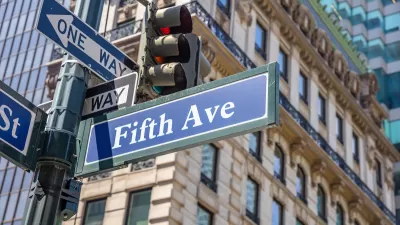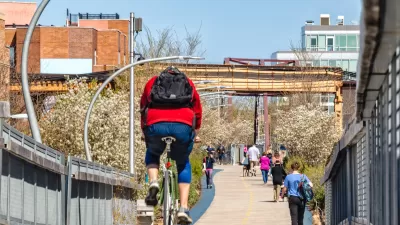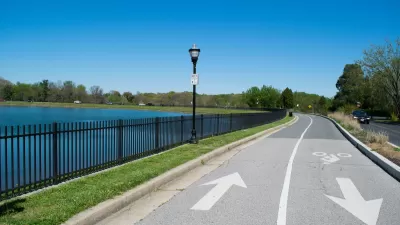Many of Europe’s pedestrian-friendly, transit-rich cities weren’t always that way.

It’s no news to urbanists that many European cities—for a wealth of reasons including history, geography, and politics—are more walkable, bike-friendly, and less car-focused than their American counterparts. In a conversation with Strong Towns described by Seairra Jones, travel host and guidebook author Rick Steves outlines how cities can achieve safe, pedestrian-oriented urban spaces.
“Our conversation ranged from the importance of populated downtowns, to the social and economic benefits of shared spaces, to how every great place has hidden heroes who helped make it that way,” Jones writes. Steves praises the robust bike infrastructure of places like Copenhagen, where ample secure bike parking makes it easy for residents to get around the city core without cars. When it comes to the lack of reliable train service in the United States, Stevens points out that “I think we have the infrastructure, but the priority for the infrastructure is not people, it's cargo.”
Moreover, while many of Europe’s most famous walkable streets and cities seem like historical artifacts, some are actually recent transformations. Through the efforts or advocates, “now, the roads are thinner, the sidewalks are wider. And the roads are used by local residents and service vehicles and police and public transit.” Steves adds, “I live in a beautiful community, and it's so clear to me that beautiful communities don't just happen. They happen because of quiet heroism of local citizens who get involved, sit in meetings, stick at something they're passionate about, and make a difference in a grassroots kind of way.”
FULL STORY: Rick Steves: What Americans Can Learn From Europe’s People-Friendly Places

Alabama: Trump Terminates Settlements for Black Communities Harmed By Raw Sewage
Trump deemed the landmark civil rights agreement “illegal DEI and environmental justice policy.”

Study: Maui’s Plan to Convert Vacation Rentals to Long-Term Housing Could Cause Nearly $1 Billion Economic Loss
The plan would reduce visitor accommodation by 25% resulting in 1,900 jobs lost.

Planetizen Federal Action Tracker
A weekly monitor of how Trump’s orders and actions are impacting planners and planning in America.

Wind Energy on the Rise Despite Federal Policy Reversal
The Trump administration is revoking federal support for renewable energy, but demand for new projects continues unabated.

Passengers Flock to Caltrain After Electrification
The new electric trains are running faster and more reliably, leading to strong ridership growth on the Bay Area rail system.

Texas Churches Rally Behind ‘Yes in God’s Back Yard’ Legislation
Religious leaders want the state to reduce zoning regulations to streamline leasing church-owned land to housing developers.
Urban Design for Planners 1: Software Tools
This six-course series explores essential urban design concepts using open source software and equips planners with the tools they need to participate fully in the urban design process.
Planning for Universal Design
Learn the tools for implementing Universal Design in planning regulations.
Caltrans
Smith Gee Studio
Institute for Housing and Urban Development Studies (IHS)
City of Grandview
Harvard GSD Executive Education
Toledo-Lucas County Plan Commissions
Salt Lake City
NYU Wagner Graduate School of Public Service





























